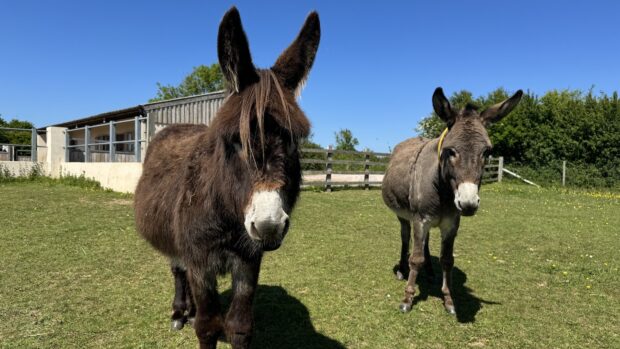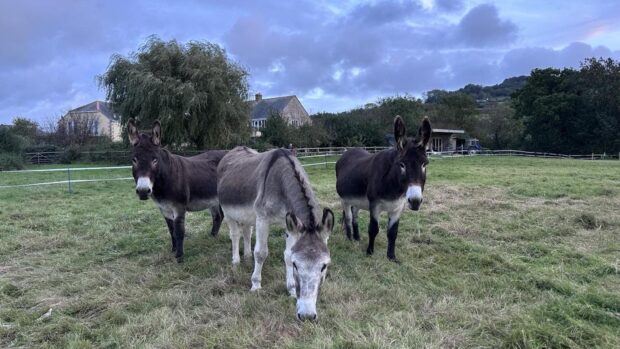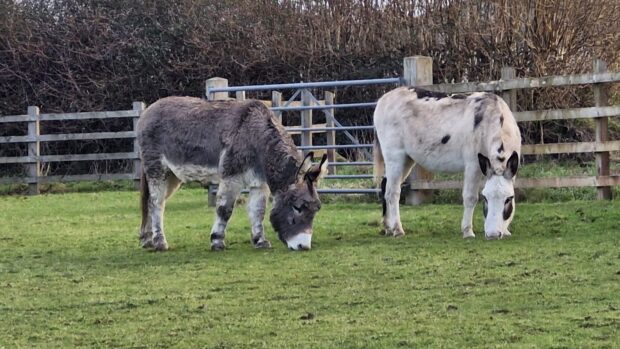The Donkey Sanctuary is well used to protecting vulnerable equids — perhaps less so vulnerable mushrooms.
But one of the UK’s rarest fungi, the violet coral clavaria zollingeri, has been found in woodland at the charity’s Paccombe Farm, which is home to more than 350 donkeys, by sanctuary conservation officer Helen Cavilla.
This is only the second time the fungus has been found in Devon, and it has only ever been spotted in a few sites in the UK; it is listed as a vulnerable species as its numbers are in decline worldwide, partly owing to habitat loss, pollution and climate change.
David Farley of the Devon Fungus Group said: “The violet coral is one of our most beautiful fungi and can scarcely be confused with any other species.
“It is very rare in southwest England and usually confined to upland areas so its appearance at the Donkey Sanctuary is especially unusual. In 40 years of observing wild fungi I’ve only seen this species once before. A remarkable find.”
The fungus is a striking pink-purple, about the size of a cauliflower, with slender projections. It is usually found in old, unfertilised grasslands, which are often themselves threatened by development. This specimen was found in a broad-leaf woodland, which is managed by the charity’s conservation team.
“I spotted something looking oddly like it was from an aquarium nestled among moss and leaf litter. It was really exciting to realise what it was when I got closer,” Helen said.
“I was also pleased to find other interesting mushroom species popping up through donkey droppings, efficiently recycling the nutrients locked within and releasing them back into the soil on which they sit. The benefits of managing grassland for both donkeys and biodiversity is beautifully apparent throughout the seasons”.
A sanctuary spokesman added that donkeys are adapted to thrive on the high-fibre, low-nutrient grazing offered by unimproved grasslands, “as well as benefiting from the enrichment foraging among the diverse grasses and wildflowers gives them”.
You might also be interested in:

‘Truly magical’: heartbroken donkey finds reason to live again with new friend
The 24-year-old donkey had been left “forlorn and lonely” following the loss of his best friend to colic

Donkeys step up to take on vital rail maintenance during lockdown
Hamish and Lady Maude have been given their own part of the railway to maintain

5 reasons why a subscription to HorseandHound.co.uk makes the perfect last-minute gift
Horse & Hound magazine, out every Thursday, is packed with all the latest news and reports, as well as interviews, specials, nostalgia, vet and training advice. Find how you can enjoy the magazine delivered to your door every week, plus options to upgrade your subscription to access our online service that brings you breaking news and reports as well as other benefits.




